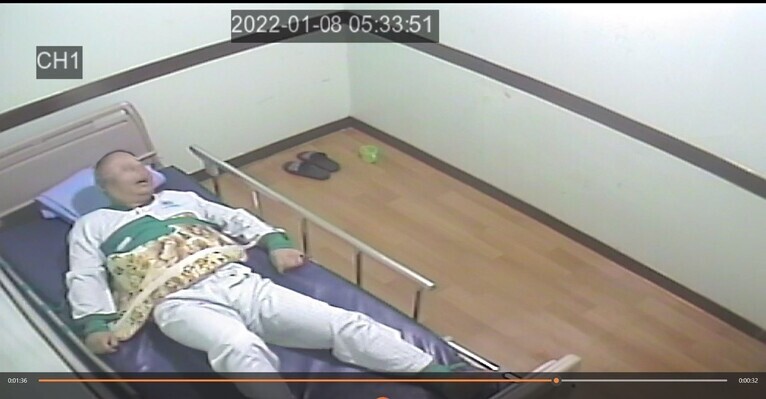








Dr. Wole Kukoyi, the Chief Medical Director of Ace Medical Clinic, has advised President Bola Tinubu to prioritize health insurance for Nigerians. Kukoyi emphasized the need to attain Universal Health Coverage and increase the number of insured individuals. He believes that health insurance is crucial for ensuring access to quality healthcare and protecting individuals from financial hardship. Kukoyi also commented on the recent cholera outbreak in Lagos, suggesting the importance of public enlightenment and promoting handwashing and proper waste disposal to prevent the spread of the disease. He highlighted the role of Rotary International and the Every Rotarian Every Year (EREY) initiative in supporting global health projects and encouraged members to contribute to the Rotary Foundation. As the pioneer District Governor of Rotary International District 9111, Kukoyi shared his plans, including the construction of a Sickle Cell Centre, to improve healthcare in Nigeria. He believes that the government can learn from Rotary's Four Way Test to create a near-perfect society. Kukoyi's experience as the founder of Ace Medicare Clinics, which aims to make quality healthcare accessible and affordable, informs his advocacy for health insurance in Nigeria. [a9514eca]
Prof Emem Bassey, Chief Medical Director of the University of Uyo Teaching Hospital, discusses the challenges in Nigeria's healthcare system, including power supply, infrastructure, finance, brain drain, and staff attitudes. He also addresses the proposed bill to compel medical professionals to practice in Nigeria for a minimum of five years before obtaining a full license. Bassey highlights the need for a conducive working environment, improved salaries, and the reversal of brain drain. He mentions the issue of abandoned corpses in the hospital's mortuary and the need for identification and communication to address the problem. Bassey shares his personal journey to becoming a medical doctor and emphasizes the importance of discipline and education. [60ed89aa]
The University of Uyo Teaching Hospital (UUTH) has expressed concern over families abandoning corpses in the hospital's mortuary for up to 15 years. Prof Emem Bassey, the Chief Medical Director, described it as a sad situation and called for identification and communication to address the problem. Bassey also highlighted the challenges facing Nigeria's healthcare system, including power supply, infrastructure, finance, brain drain, and staff attitudes. He emphasized the need for a conducive working environment, improved salaries, and the reversal of brain drain. Bassey also addressed the proposed bill to compel medical professionals to practice in Nigeria for a minimum of five years before obtaining a full license. He stressed the importance of discipline and education in the medical profession. [60ed89aa]
The challenges in Nigeria's healthcare system are multifaceted and require comprehensive solutions. Power supply issues affect the functioning of medical equipment and the delivery of quality healthcare services. Inadequate infrastructure, including dilapidated hospitals and limited access to medical facilities, hinders the provision of timely and effective healthcare. Financial constraints limit the availability of resources for healthcare institutions, leading to shortages of essential supplies and equipment. Brain drain, the migration of skilled healthcare professionals to other countries, further exacerbates the shortage of qualified personnel in Nigeria's healthcare system. Additionally, negative staff attitudes and a lack of motivation contribute to substandard healthcare delivery. These challenges highlight the urgent need for investment in healthcare infrastructure, improved working conditions, competitive salaries, and policies to retain and attract skilled healthcare professionals. [60ed89aa]
Shoddy records in Korean psychiatric hospitals are enabling the concealment of abuse and violations of guidelines for seclusion and restraint. The country's human rights watchdog has found that many smaller hospitals are flagrantly violating these guidelines, resulting in the mistreatment and deaths of patients. The article provides several examples of abuse, including patients being confined and restrained without any instructions from a doctor, patients being beaten to death by other patients, and patients being restrained in regular hospital beds instead of designated quarters. The lack of proper records and evidence makes it difficult to hold hospitals accountable for these violations. The article also highlights the challenges faced by smaller private hospitals, which often lack staff and funds to provide adequate care. These hospitals rely on state subsidies and support, which are often insufficient. The article calls for stronger enforcement of regulations, improved record-keeping, and increased support for mental health services in Korea. [b522daa7]
In a separate story, Bongie Msibi discovered she had been forcibly sterilized at Baragwanath Hospital in Johannesburg during childbirth. Her fight for justice exposes a systemic issue in South Africa's healthcare system, raising questions about medical ethics and human rights. Msibi's uterus was removed during her delivery at Baragwanath Hospital without her knowledge or consent. She embarked on a journey seeking justice and accountability, filing a complaint against the hospital. Forced sterilization is a prevalent violation of women's rights in South Africa, raising questions about informed consent and healthcare provider obligations. Msibi's story highlights the need for systemic change and patient empowerment. The dialogue around forced sterilization and patient rights gains momentum. Future safeguards are needed to protect others from similar fates. Msibi's story sheds light on a dark corner of medical practice that demands attention and rectification. [8512fb94]
Sucharita Patra, a microbiologist, fell ill with viral hepatitis two days before her wedding. Despite being hospitalized, the bride and her family decided to proceed with the wedding. The hospital authorities allowed them to hold a small ceremony in the hospital ward, where Sucharita exchanged garlands and vows with her now-husband, Amit Mukherjee, an engineer. The wedding took place at Life Care Hospital in Durgapur, with the CEO and senior operations manager granting permission for the ceremony. The bride's family expressed gratitude to the hospital for accommodating their request. The families of the bride and groom, along with ten family members and a priest, attended the ceremony. [4934fb8d]
Sophie Teague, a 31-year-old from Bell Post Hill, shares her 20-year battle with endometriosis, highlighting the importance of awareness and early intervention. She underwent two significant surgeries at Epworth Geelong, under the care of Dr Madeleine Ward and Professor Glenn Guest. The Julia Argyrou Endometriosis Centre at Epworth aims to deliver comprehensive care for those with endometriosis. Sophie's story offers hope for others suffering from the condition and emphasizes the need for early intervention and greater awareness. Her journey encourages others to seek help and advocates for informed, compassionate care. [90870774]
Matron Rose Amankwaah, a former international sprinter and NHS nurse, is retiring after 49 years. She represented Ghana at the Olympics and Commonwealth Games and has spent her entire nursing career at Central Middlesex Hospital in London. Mrs. Amankwaah started working for the NHS in 1975, just three years after competing in the 100m relay for Ghana at the Munich 1972 Olympics. She was given weekends off initially to continue her athletics training. Her retirement trip will be to Ghana to visit her sister, and she is considering staying on the nursing register for supplementary cover when called upon. Mrs. Amankwaah has received the NHS Silver Medal Award and has met royalty and senior politicians during her career. [1466b3c8]
Cathy Fisher, a 61-year-old woman from Omaha, Nebraska, shares her story of recovery from neuroinvasive West Nile disease. Fisher spent a month at Methodist Hospital after contracting the rare complication of the mosquito-borne virus. She was on a ventilator and underwent rehabilitation at Madonna Rehabilitation Hospitals and QLI rehabilitation center. Fisher's remarkable recovery is attributed to her healthy lifestyle, overall fitness, and hard work, as well as the quality care she received and the support of her family and friends. Fisher hopes to inspire others facing similar situations to stay positive and keep working towards recovery. [8bd037dc]
The family of late Mrs. Charity Broderick accuses a Lagos hospital of manipulating medical bills and detaining her corpse. The hospital demanded a payment of N515,000 for inadequate care provided to their mother. The hospital moved her corpse without their knowledge or consent. The family is appealing to the hospital to release her body for a proper burial. The hospital representative, Mrs. Nkechi, explains that the payment was for dialysis treatment and that the outstanding bills must be settled and a death certificate issued before the body can be released. [1245be0c]